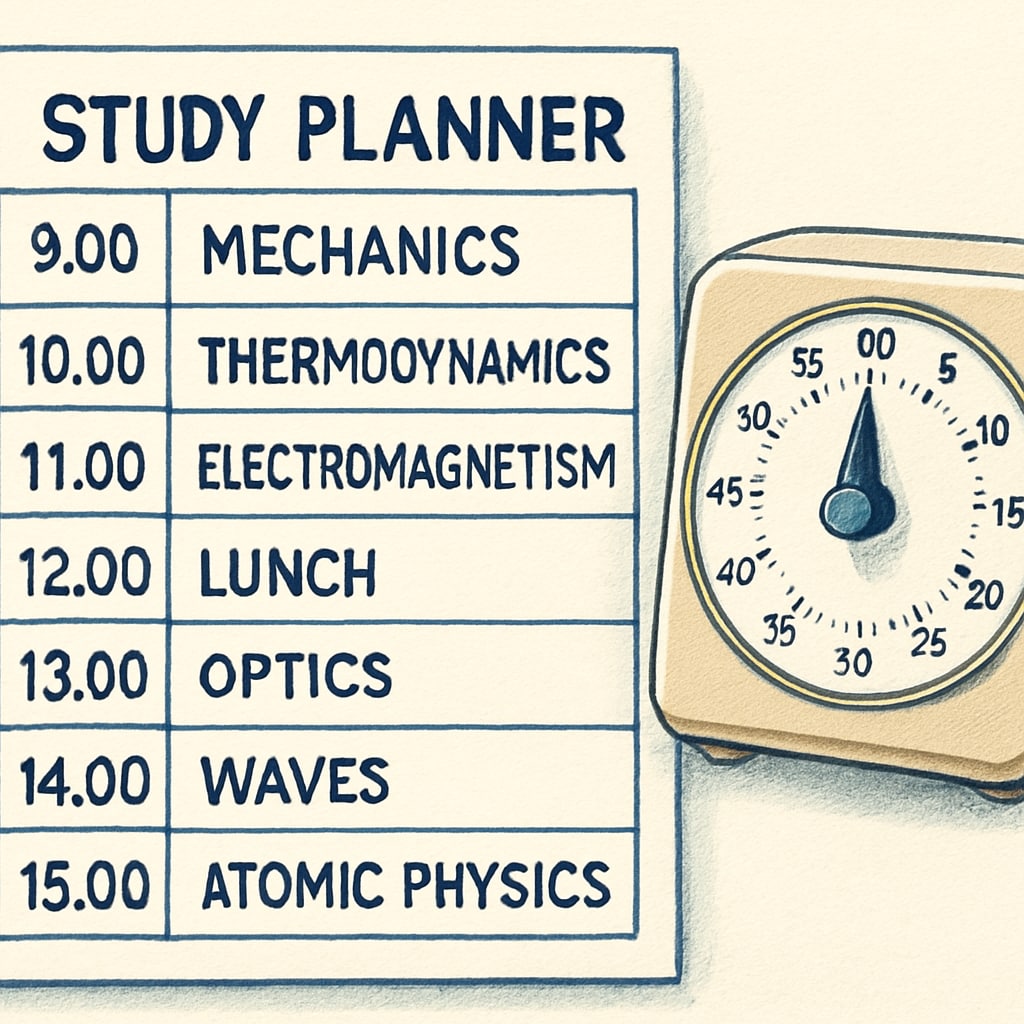For many high school students, clearing physics backlogs while juggling time management and exam preparation can feel overwhelming. Physics, with its blend of conceptual theories and problem-solving, often creates bottlenecks, especially when backlogs accumulate. However, with a strategic approach, you can turn this challenge into an opportunity to strengthen your understanding and ace your exams.
Identifying the Root of Physics Backlogs
Before diving into strategies, it’s important to understand why backlogs occur. Common reasons include:
- Skipping foundational concepts that build upon each other (e.g., Newtonian mechanics, kinematics).
- Inadequate time management, leading to last-minute cramming.
- Lack of personalized study methods that suit individual learning styles.
Having a clear idea of what caused your backlogs will help you tackle them effectively. For example, if weak foundational concepts are the issue, dedicate time to reviewing past material before moving forward.

Time Management: The Cornerstone of Clearing Backlogs
Effective time management is critical when you’re under the pressure of exams and have backlogs to address. Here are some actionable tips:
- Evaluate Your Deadlines: Start by listing all upcoming exams or assignments. Rank the topics based on their urgency and importance.
- Create a Study Schedule: Allocate specific time slots for each subject daily. Divide your time between revisiting backlogged topics and practicing current ones.
- Use the Pomodoro Technique: This method involves working for 25 minutes and then taking a 5-minute break, which can help sustain focus during long study sessions.
These techniques not only help manage your time but also prevent burnout, ensuring that you can maintain consistent progress. For more insights on time management, visit Time Management on Wikipedia.

Strategic Exam Preparation for Physics Topics
Once you have a schedule in place, focus on exam-oriented preparation. Physics requires a balance of theoretical understanding and practical problem-solving skills. Here’s how to achieve this:
- Master Core Concepts: Identify the most important topics (e.g., laws of motion, thermodynamics) and ensure you understand the underlying principles. Resources like Physics on Britannica can be useful for in-depth explanations.
- Prioritize Problem-Solving: Spend at least 60% of your study time solving problems. Start with basic examples and gradually tackle more challenging ones to build confidence.
- Use Past Papers: Practicing past exam questions helps familiarize you with the format while highlighting areas that need improvement.
Consistency is key. Even if you can only dedicate a few hours daily, make sure they are distraction-free and focused.
Leveraging Tools and Resources
In the digital age, there are countless tools to enhance your learning process:
- Video Tutorials: Platforms like YouTube and Khan Academy offer free videos that break down complex physics topics into manageable parts.
- Apps for Practice: Apps such as Quizlet and Physics Toolbox can help reinforce learning through flashcards and interactive quizzes.
- Group Study: Collaborate with peers to discuss challenging concepts or solve problems together.
By integrating these tools into your study plan, you can make your revision more dynamic and engaging.
Readability guidance: Use short paragraphs and bullet points to summarize key strategies; mix theoretical insights with practical tips. Ensure that all advice is actionable and easy to follow.


